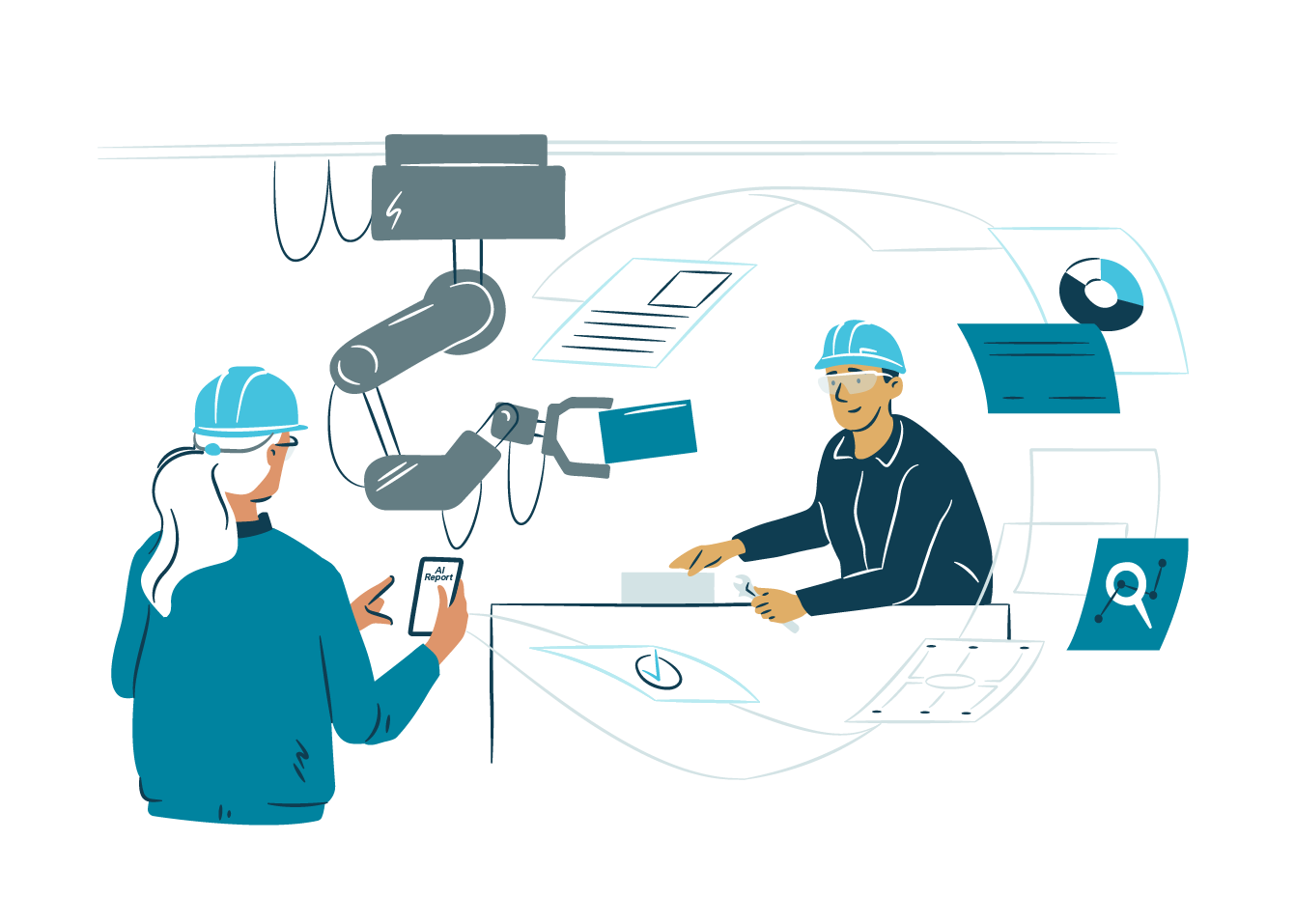This blog post is part of our Recoding Society blog series started by Mikko’s blog ‘Creating a positive impact’. The series highlights the impact our work is having on Society. We have identified several challenges we are helping organizations and citizens to overcome, and in this series, our experts share their thoughts featuring real projects one theme at a time.
One of the challenges identified was a question relating to empowering people and organizations. How can this be done? In this blog I first deliberate about the term “empowering”. What does this actually mean? Then give some examples of activities which I believe demonstrate developing empowering solutions.
Creating services that are beautiful
Empowering as a term is quite dated however, understanding exactly what empowering entails is still not straightforward. I conducted a small study using a group of my friends. First, I asked, “what does empowering people mean to you”. I got a wide range of answers starting from “nothing really” to “feedback from other people”, “inspiring growth stories”, “a thing that gives me energy”, “seeing confident people” and so on but nothing really what I was expecting as an answer. This made me feel a bit frustrated. Why are we using this word since it is clearly understood in so many ways? To me, empowering people means creating services that are beautiful and easy to use and that deliver on (or exceed) the users’ expectations. So I carried on and asked next “what kind of services make you excited” and I got answers like “simple, easy to use”, “UI is easily read”, “able to use my information from several different sources”, “a service that makes me feel it has been developed for me and not for the organization”. These answers resonate with me and I can link them to my work. I can also link them to the ever-evolving world of services.
So, I guess it’s fair to say that even after a very small and by every aspect, not scientific study that a definition for empowering is difficult. It has been defined as an activity stating a concrete action where one authorizes, permits or warrants someone to do something, but often it’s more complicated. Empowering sometimes means that one ends up making someone (else) stronger, better in control of their life, more confident, happier, and so on ( source ) And when we start to get terms like these, we get close to personal feelings and experiences, but we also start comparing to a reference group which further complicates the definition. My final point here being that when we design empowering digital solutions, we must be super conscious not to get cocky, not to think that we know, but rather to be very alert of the things that we simply do not and cannot know (on behalf of others).
What do we do then when amongst all the other important requirements we also need to take account of empowering people and organizations when designing digital solutions? This sounds like an almost impossible task. How can you figure out different things that will have a meaningful, positive, sustainable, ethical and legal impact and that are also empowering different aspects of our quality of life? Luckily this is a question that we are not trying to solve alone.
Using AI and data in an ethical way
In Finland, the preliminary study on the Aurora national artificial intelligence program worked on how cross-organizationally by using AI in an ethical way, completely new services which come close to people’s life events can be developed. Empowering people by enabling easier access to more suitable services was at the heart of the pre-study. Experts from Gofore participated in ‘Moving to a place of study’ and ‘The well-being of children and parents in changing family relationships’ projects.
The MyData movement works rigorously “to empower individuals with their personal data, thus helping them and their communities develop knowledge, make informed decisions, and interact more consciously and efficiently with each other as well as with organizations” (source:mydata.org). Gofore is a member of MyData Global as we believe in the same mission to empower individuals by improving their right to self-determination regarding their personal data.

Already up and running in Finland, we have our very own Kanta-services where we as citizens have access to our health and prescription data and the professionals always have up-to-date patient data. Kanta-services are a huge step towards even more empowering services in the welfare sector. Much like AuroraAI, preliminary studies for Kanta are developed by a wide variety of operators including Kela and THL but also users and IT system developers. This demonstrates how the public and private sectors when working towards common goals and including the users, can create something completely new. Gofore is one example of a private sector company involved in Kanta-development.
Recently there was much debate and even heated discussion around the secondary use of health and social data. Despite the discussion, a separate law was approved by the Finnish Parliament on 13.3.2019 making Finland a forerunner in enabling innovative and ethical use of data. In a nutshell, this law will level up the market for health and social services by making it possible to use data for steering, supervision, research, statistical analysis and development. In other words, this new law simply empowers organizations and companies providing health and social services to develop the market more equally.
Through programs like AuroraAI and movements like MyData plus concrete projects like Kanta, which are pioneering, I believe that significant and sustainable improvements with even deeper and wider impacts than merely empowering individuals or companies will happen. It makes me very happy to be able to say that Gofore is participating in all of the activities described in this blog.



